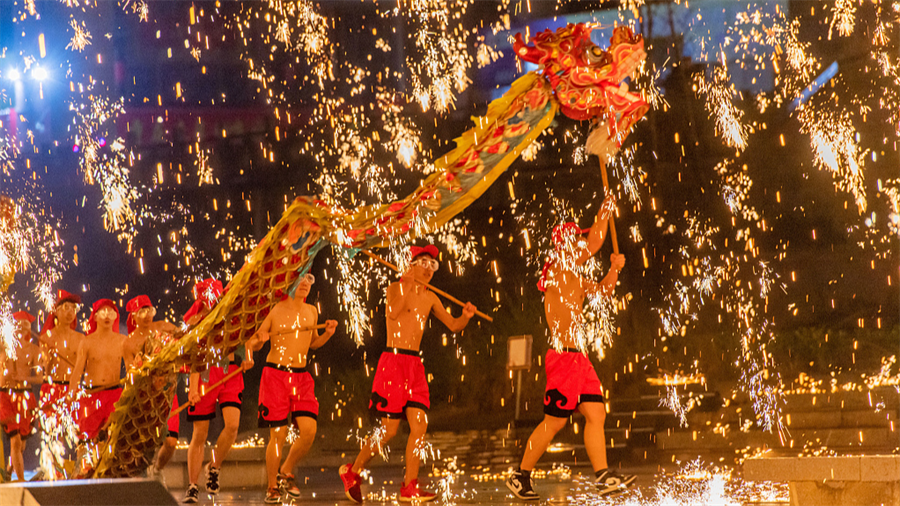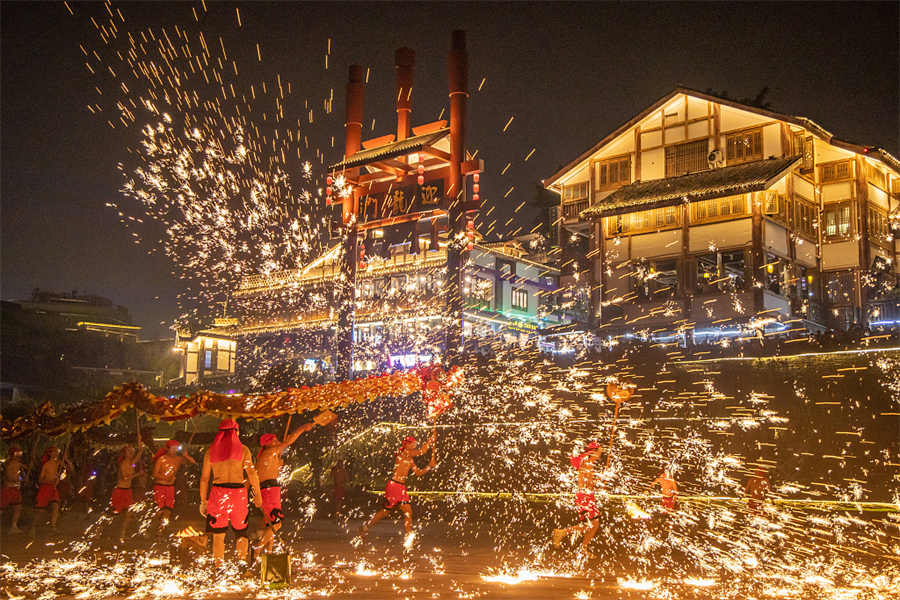The Year of the Dragon spectacle: Tongliang Dragon Dance

A file photo shows a Tongliang Dragon Dance performance at Ciqikou Ancient Town in Chongqing. [CFP]
On the occasion of the Year of the Dragon, the Tongliang Dragon Dance is certainly one of the most evocative and atmospheric performances staged at major celebrations.
Tongliang Dragon Dance is a dance art form that originated in the Tongliang District of southwest China’s Chongqing Municipality and dates back to the Ming Dynasty (1368-1644), reaching its peak during the Qing Dynasty (1644-1911).
The dragon prop used in the Tongliang Dragon Dance consists of 24 sections, representing the 24 solar terms of the traditional Chinese calendar. Depending on the occasion and other specific requirements, the length of the dragon can extend to over 50 or even 100 sections. During grand celebrations, up to nine huge dragons can be seen dancing together.
"Tongliang is the 'home of the dragon dance,' and the Tongliang Dragon Dance, during its long tradition, has evolved into more than 20 different varieties," said Zong Heyun, director of the Intangible Cultural Heritage Protection Center in Tongliang District.

A file photo shows a Tongliang Dragon Dance performance at Ciqikou Ancient Town in Chongqing. [CFP]
Among them, the Fire Dragon is Tongliang's most distinctive folk performance, featuring roaring flames and superheated arcs of molten iron sparks sprayed high into the air. The rhythmic beats of drums and gongs accompany the bare-chested men, creating a captivating scene of excitement, grandeur and wonder.
As one of the first national intangible cultural heritages, the Tongliang Dragon Dance has gained widespread fame. In recent years, it has frequently graced the stage of China Media Group (CMG).
The Tongliang Dragon Dance has not only featured in major domestic celebrations such as the 35th, 50th, 60th and 70th National Day celebrations, the opening ceremony of the 2008 Beijing Olympic Games, the 2010 Shanghai World Expo and the 2019 Beijing International Horticultural Expo, but it has also been performed in more than 300 cultural exchanges in over 30 countries and regions, including the United States, the United Kingdom, France, Australia and Singapore, bringing the spectacular artistic charm of this unique dance to a wider global audience.
























